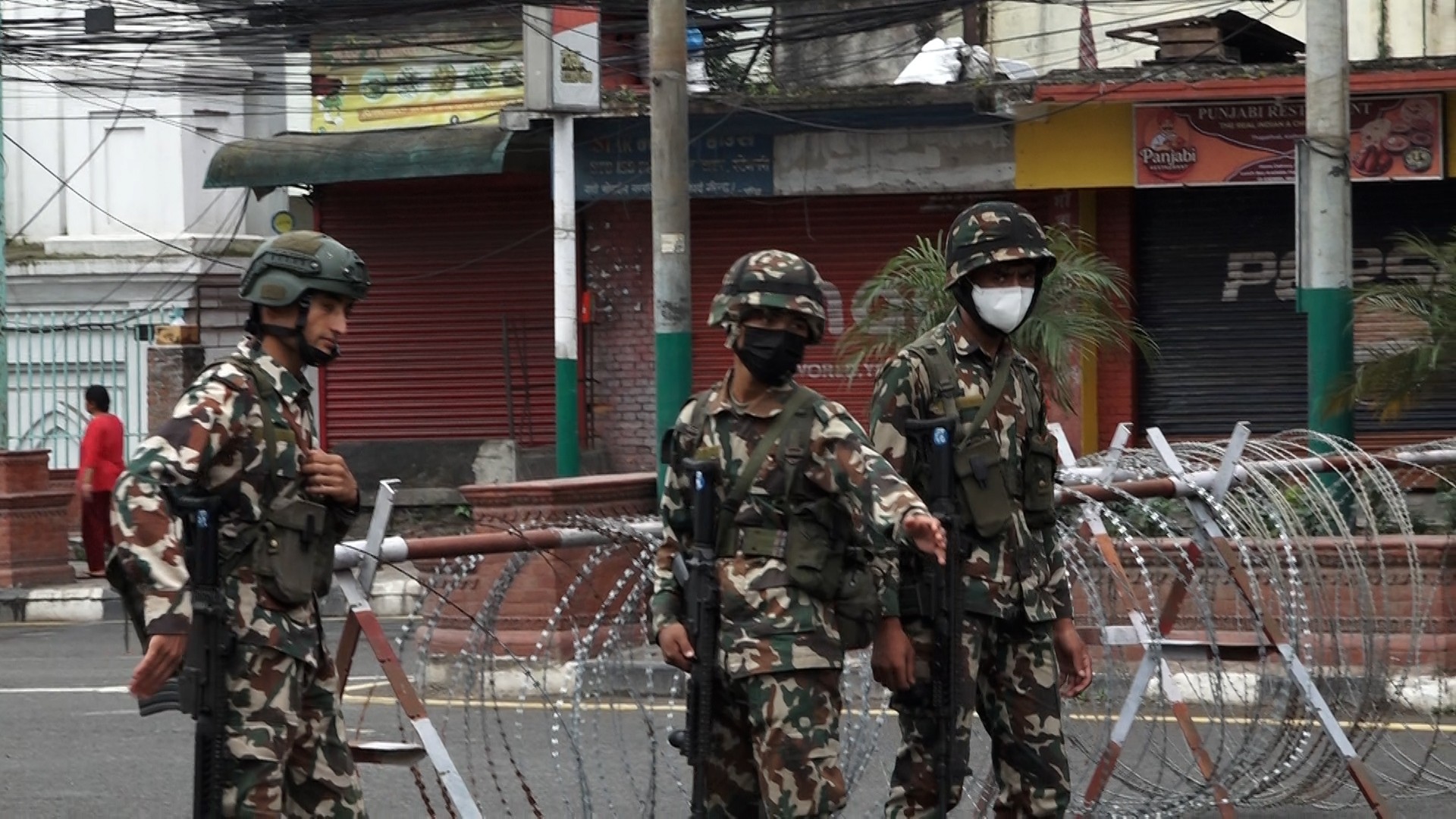

KATHMANDU: As the Gen-Z-led nationwide protests on September 8 and 9 fail to yield a resolution for the interim government, the Nepal Army has intensified its control across the capital.
By 7 pm on Thursday, the Army had shut down major market areas in Kathmandu, enforcing strict security after a day of heavy street patrols.
Army Chief Ashok Sigdel spent Wednesday and Thursday in extended dialogue with controversial activist Durga Prasai, who presents himself as a representative of former King Gyanendra.
Prasai, a former UML member jailed for nearly three months after the May 29 violence, has become a key interlocutor in the ongoing negotiations.
Sigdel reportedly also encouraged Gen-Z leaders to engage with Prasai as part of dialogue efforts.
Meanwhile, the Army has placed unprecedented restrictions on political leaders it brought under protective custody on Tuesday, limiting their phone and social media access.
This includes outgoing Prime Minister KP Sharma Oli, Nepali Congress President Sher Bahadur Deuba and CPN (Maoist Centre) Chairman Pushpa Kamal Dahal ‘Prachanda.’
Their temporary confinement has fueled speculation about possible moves to restore monarchical influence amid the political vacuum.
In a notable shift, political party leaders who had remained silent or in hiding after the two violent days of protests have begun speaking publicly.
Young leaders from major parties held a meeting today, warning that protests could intensify if a new interim government is formed outside constitutional provisions.
In this tense scenario, the Army’s continued lockdown of key market areas and strict monitoring of media movements has further amplified uncertainty.
Gen-Z leaders, who toppled the two-thirds majority government within two days, have continued to congregate at Bhadrakali, often arguing among themselves, with clashes reported on Thursday as well.
With the dialogue deadlock unresolved and Army operations tightening, public concern over potential escalations is mounting.
As the Army enforces partial curfews and restricts movement near Baneshwor and the Parliament area, journalists face increasing obstacles in reporting.
Observers are now closely watching the evolving balance of power, with both political parties and Gen-Z activists under heightened scrutiny.